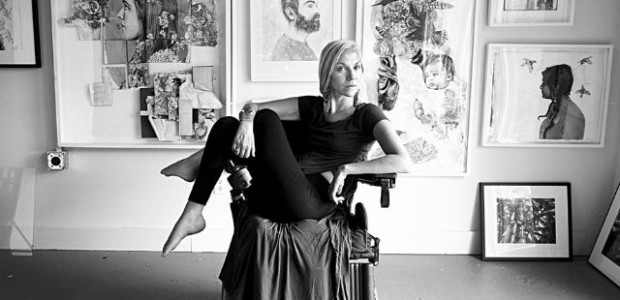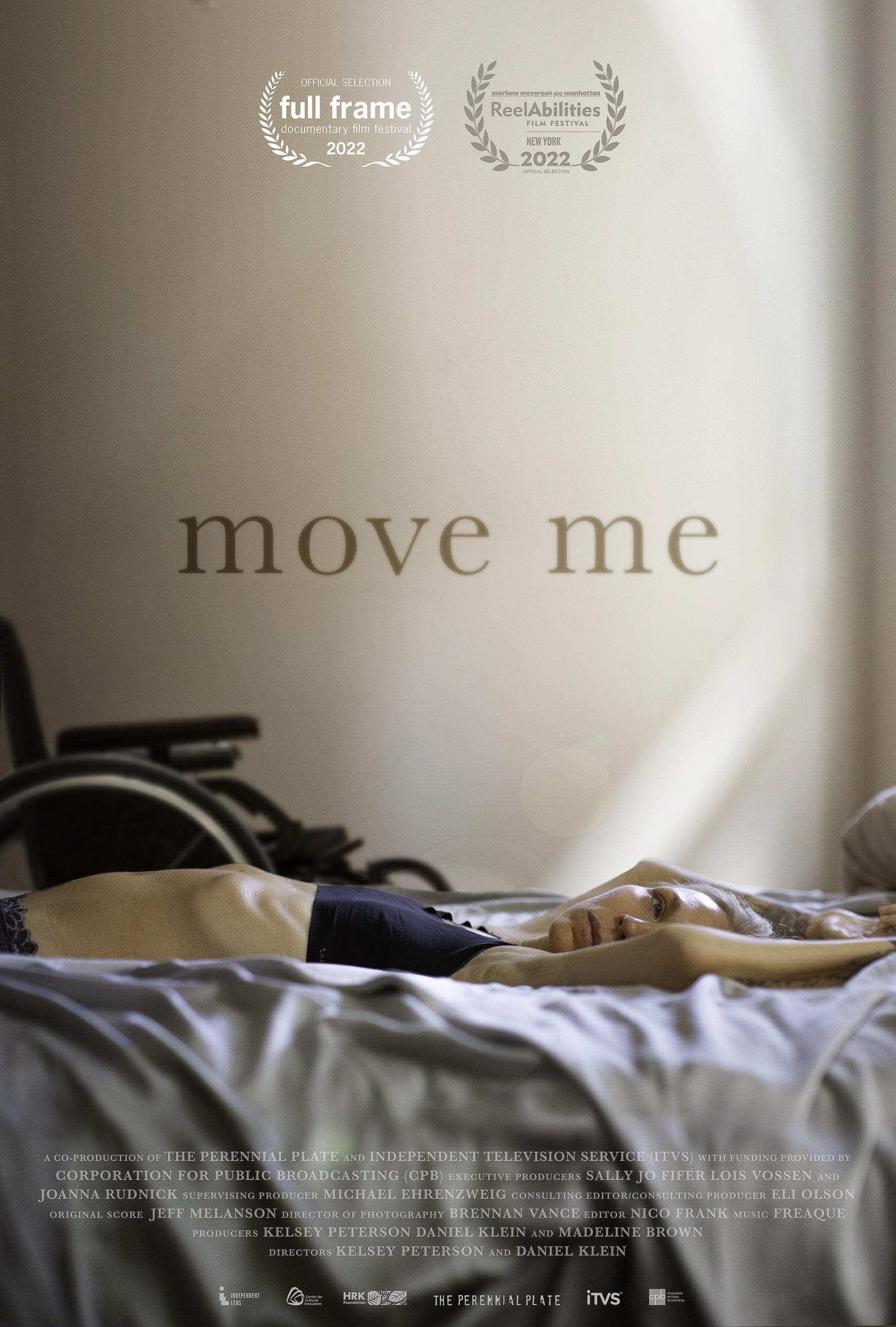To be disabled is to have a uniquely intimate relationship with one’s body. From the way we move in the world to the way we feel, it’s a constantly shifting spectrum the likes of which able-bodied people can’t quite fathom. I know this on a personal level because of how they respond when I explain my needs to them, as someone with CP, or when I see them watching me go about my day. No able-bodied person has ever been congratulated and praised for going grocery shopping, after all. Yet there is a side to living with a disability even I am unable to fully grasp. I was born with mine, and as such can’t quite imagine the depth of experience for someone who becomes disabled after having spent years as an able-bodied person. Such was the case for dancer-turned choreographer/filmmaker Kelsey Peterson, who suffered a spinal cord injury that left her paralyzed following a dive into Lake Superior. MOVE ME is but one piece of her journey to understand, share, and adapt to living with her newfound disability while coping with the loss of her identity as a dancer. It’s a beautiful, important work that shines light on a struggle we all face: the reality that life can change at any moment and with any degree of severity.
There’s a lot in MOVE ME that feels necessary to hear, for disabled and able-bodied people alike. The shock of being thrust into the world in a new way, where the place you thought made to bend to your will is suddenly rife with obstacles you’d never previously even considered; the push-pull emotional roller coaster of redefining yourself after a major and traumatic shift; the reality that people who may have originally seen you when you were like them suddenly cannot see beyond your assistive devices; it all delicately intertwines at the heart of Peterson and co-director Daniel Klein’s documentary. Kelsey’s constantly shifting belief in hope for the possibility of regaining the life she had before her accident when she discovers an experimental treatment that might give back her motor function does a beautiful job of paring her down to her core and putting on full display the things most of us take for granted without a second thought. Could it give her back her identity as a dancer? Perhaps. Could it also give her back her basic independence related to daily self-care tasks like dressing or going to the bathroom? Maybe. Could she even regain sexual function? Some cases say yes! But while she’s evaluating the risks and potential rewards of the trial, she’s also refining her relationship with herself as she is now.
This balancing act of hope-for-return and acceptance is a delicate tightrope, but a vital one to show. Peterson and Klein (along with Peterson’s care assistance and family) deciding not to shy away from any part of her journey or desires is a choice that, while not unique to documentaries or even exclusively best suited, fits right at home with the inherently intimate nature of the approach. No able-bodied person wants to hear about the reality of disabled people as sexual beings, otherwise we wouldn’t have so many saccharine savior or miraculous healing stories as we do on the narrative fiction end of the spectrum. Her story in her own words allows a kind of control not often given to disabled people that remains refreshing and exciting to see.
I don’t have to have had and lost an able one to know the longing of wanting a different body than the one I’ve been given. I can be born with my disability and still know the spark of joy at the idea that things once out of reach might be closer than I thought after all. The strangely beautiful thing about disability as an experience is that, while we’re all different and cope in our own ways, the journey to acceptance seems relatively universal. It’s part of why I love covering disabled stories even when they differ from my own. We don’t even all use the same language when talking about ourselves (some, like Kelsey seems to for at least part of the time, prefer person first descriptors), but we all know what it’s like to adapt in a world that keeps us in the periphery until we scream loud enough to turn their heads.
One of the most fascinating elements of MOVE ME is the sort of mirror worlds of water and dance. Faced with new opportunities to still pursue a career in her beloved field, Kelsey seems to start to redefine and re-explore both her own story and her relationship with her disabled body. Water, meanwhile, is the origin for her loss and, at a certain point, an avenue for healing. The same lake that reshaped life as she had known it for 27 years is the first place she’s able to move independently. It’s a poignant dichotomy and powerful endnote for the film, and an image that should linger with viewers long after they leave.
Perhaps the most important element of MOVE ME to come away with, however, are Kelsey’s observations about the differences between life before her accident and life now, and the way she finds humor in the smallest moments (like being faced with the single most inaccessible bathroom I’ve ever seen). She is never made to be ashamed of her desire to regain full movement and return to her former dancing abilities, but she’s also open to reforming an identity in a community she was thrust into. Facing the shift of perception about the world, she discovers joy and heartache in relatively equal measure and in ways she’d never previously considered. Shopping in areas that don’t account for accessibility, losing basic self-care abilities, and dealing with the shame of not being able to tell what your body does when you can’t feel it…I’ve done it all myself in phases, and so in that sense felt connected to her even at her lowest moments. But we don’t need to share the experience to give it a platform.
All that matters is that we give these stories a space and an ear and an eye toward understanding. MOVE ME is but one of the disability-centering documentaries I’ve seen this year, and to even be able to say that is a joy. I’ve spent years longing to see more stories like mine on a wider scale, and it seems like the time is finally coming for the light to shine in our direction.
Tags: Dancing, Daneil Klein, Disability, documentary, Film Festivals, Freaque, Full Frame Documentary Film Festival, Kelsey Peterson, Move Me, ReelAbilities Film Festival




No Comments